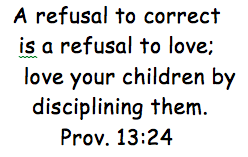Originally posted by Ron Furgerson…
Last Father’s day I was honored to be asked to sit as part of a panel discussion on fatherhood at our church, New Life Christian Church in Chantilly, VA. Our senior pastor, Brett Andrews, was the moderator and other panel members were David Edwards, Dale Spaulding, and Pat Furgerson. It was a fun experience but at the same time a bit daunting. While I have learned a great deal about fatherhood over the years, both as a father, grandfather, and great grandfather, my experience has taught me what a flawed father I have been and how many mistakes I have made. Still, God has blessed me richly and I am without words to adequately express my gratitude to the perfect Father God for all He has done. With that said, I decided that sharing a bit of what I’ve learned and experienced might be helpful to someone. I’ll do this by just remarking on the topics that were addressed by the panel. So, here goes:
Father’s Day Panel at New Life
5/15/14
Q. How do you adjust to the individualism of sons?
– Get rid of your own expectations of what your children will or should be as far as their individual personalities, likes and dislikes, interests, skills, etc. My sons, Thatcher and Patrick, had very little interest in participating in sports, although that was a major component of my life as a boy. And I just expected, or assumed, that they would have the same interest and that we would play a ton of sports together. That didn’t happen. And that was ok – but not what I expected.
– Concentrate on meeting them where they are and showing love and godly acceptance.
– As much as possible join with them in their interests. For example, if they aren’t particularly interested in sports but are fascinated with electronics, find something you can do together in that area. One of my best memories as a father is the time Thatcher and I built a color TV set together from scratch. I had thought Thatcher and Pat might be interested in a military career since I had enjoyed my service in the Navy so much. But, they had zero interest in the military, but loved computers. So, I found pleasure in helping them pursue careers along those lines. I believe that going out of your way in helping your children pursue their interests and passions is probably one of the best ways possible to maintain a strong bond with them as they approach adulthood. Help them with their interests, whatever they might be, e.g., music lessons, Young Life clubs and church youth groups, part-time employment, sports, etc.
Q. What did you learn about how kids experience love?
 – The concept of “Love Languages” had not occurred to me when Thatch and Pat were growing up. But, as I look back on it I can see that what they responded to more than anything was “quality time” and “words of affirmation.” And now that they are adults that is still the case and we love spending time together – weekly “Guy’s lunch” together where we catch up with each other’s doings and encourage each other.
– The concept of “Love Languages” had not occurred to me when Thatch and Pat were growing up. But, as I look back on it I can see that what they responded to more than anything was “quality time” and “words of affirmation.” And now that they are adults that is still the case and we love spending time together – weekly “Guy’s lunch” together where we catch up with each other’s doings and encourage each other.
– I’ve learned that the way you experience love is usually reflected in how you show love. With both Thatcher and Pat they show love by “acts of service.” When they were growing up I didn’t know that but it is obvious now. I’m assuming that they experienced love mostly through their Mom since I was away so much due to work and travel commitments. Perhaps my less than optimal amount of time with them when they were growing up led to the value they place of “quality time” as adults.
Q. How do you balance having high expectations for your children with having patience with them?
– First, anyone who has ever been in a support group like our own Celebrate Recovery will tell you that Expectations are simply resentment under construction, or the perfect blueprint for bitterness.
– But, as much as we are going to have expectations, it is wise to be sure they are reasonable. With respect to kids, expectations should be based on a rational assessment of their God-given talents and abilities. Not every kid will be a star athlete or an elite musician, or academic wizard. If what you expect from your children is reasonable it is much easier to encourage them and to be patient with them.
– Instead of “expectations” for children I prefer to think in terms of what I “hope” for them. And for me that has never been in terms of achievement by the world’s standards, e.g., in terms of sports prowess or academic achievement or business success – but rather that they will develop in their relationship with Jesus and allow God to direct their lives – that they will live virtuous, honorable lives and be of noble character.
Q. Even though it is risky, how do you release your kids?
– First, I must really take my hat off to the father in the “Prodigal Son” parable. What a great example of releasing under terribly risky conditions.
– Trying to truly release Thatcher and Pat was one of the most difficult things I ever had to do. And, there is a tension between what you’re releasing them to and WHO you’re releasing them to. A lot depends on your level of trust in your own Heavenly Father – and the degree to which you really believe at a core level that He loves your children more than you do.
– If there is anything that will drive you to your knees and make you realize that you really don’t have control it is releasing your children. You must pray and trust the Heavenly Father.
– With Thatcher, I had already released him twice, once in elementary school and once in middle school, when he had life threatening illnesses, encephalitis and meningitis. God taught me through those two scary times that I could trust Him – and I was able to pray “Thy will be done.”
– But, releasing your child does not mean you don’t use restraint when it is needed and that you are not allowed to give instruction or advice during the release process. And, if done carefully and in a loving manner, based on a prior basis of trust, I believe most children expect and are willing to listen to and even embrace a parent’s counsel.
– Knowing when and how to release, even when it is risky, is important. We did not release Pat to play in the street when he was three-years old although he would have liked nothing better.
Q. How have you helped your kids develop their own love and faith in God?
– Watching the NBA playoffs I heard it said that basketball is the sport that requires the greatest teamwork. (Incidentally, in the 2014 playoffs the Spurs really give the Heat a lesson in teamwork.) But, to me, it is important to recognize that a father does not parent in a vacuum. Hopefully he will be a part of a parenting team where the Mother, other siblings, grandparents, family friends, and the church are there to provide help, guidance and support. Community has been of paramount importance to me in being a father. It helped in overcoming the disadvantage of a career which put time with children at a premium. Community has always been a tremendous blessing to me.
– Witnessing the example of godly parents can be the greatest influence in a child’s developing a love and faith in God. Parents who love and trust God and display that love and trust in their daily lives provide a wonderful example that can pay dividends. That is what my wife and I really worked at. We did our best to be sure that at church the boys were receiving solid Christian instruction and that they learned how to worship. We tried to teach them about Christian service by our own volunteer work at church and in the community. Mostly we strove to demonstrate to them by our daily lives how important serving Jesus was to us. The saying that better caught than taught couldn’t be truer than in rearing godly children.
Q. How do you balance grace with discipline?
 – First, this is an area which is absolutely formative in a child’s development. The way a child is disciplined will contribute to how he perceives God’s character and how God deals with people. We don’t want to convey the wrong message about God – either that He is mean and vindictive, or that God does not have standards or expect obedience.
– First, this is an area which is absolutely formative in a child’s development. The way a child is disciplined will contribute to how he perceives God’s character and how God deals with people. We don’t want to convey the wrong message about God – either that He is mean and vindictive, or that God does not have standards or expect obedience.
– Pray for wisdom. And pray for discernment — that God will reveal to you what your children need from you in any particular situation. Sometimes they need discipline. Sometimes they simply need instruction. Sometimes forgiveness.
– Collaboration with the wife on discipline is a great way to find balance. I found that when I was ready to blast one of the boys, Marj would help me with restraint. And there were times when I was able to save them from sure destruction at her hands!
– I love it here that we’re talking about discipline and not so much about punishment for a transgression because discipline is much broader. And when correction is needed, just referring to it as discipline makes it easier to be wise in the administration of justice.
– I was not always so good at this, but It helped me to view any transgression of appropriate behavior by Thatcher or Pat as an offense against God more than as an offense against me – although sometimes, I will admit, sometimes it seemed personal. Viewed as an offense against God it is much, much easier to be both judicious and grace-filled in administering discipline.
– Obviously you should never discipline when angry or discipline out of anger. It should be administered in a fair way which does not exasperate or shame the child. Discipline should never be done to shame a child. Remember, you’re responding to what a child has done — not who the child is.
– Discipline must be viewed as a means of restoring a right relationship with God and the family – just as is the case of God disciplining those He loves.
Q. What advice would you give fathers?
– Treasure every moment you can spend with your children. The moments are precious. And this is true when they are adults, as well as when they are young.
– Be very conscious of your relationship with your children. Guys can be oblivious! My experience with support groups and with our men’s groups has taught me that the “Father Wound” is very common and has caused many men great emotional damage. The father wound occurs most frequently with “absentee fathers” – those fathers who spend little time with their children, either because of work demands or because of their emotional detachment. A “Father Wound” can also occur when a father puts extreme pressure on a child to achieve or to excel beyond the kid’s capabilities.
– With regard to being a father to sons I suggest Dads concentrate on teaching their sons what it means to be an honorable and noble man. They should give their son a definition of what a godly man is. For example, in our men’s groups our guys have learned that an authentic man is one who resists passivity, accepts responsibility, acts courageously, and expects and looks forward to God’s blessing and reward.
Final thought. In reviewing this prior to hitting the “Publish” button it occurred to me that even when we fail miserably in our parenting, God does not. When children turn to Him, even following horrendous experiences of parenting done wrong, God is anxious to heal and redeem. That should be comforting to every parent who wants God’s best for their children. RMF <><



